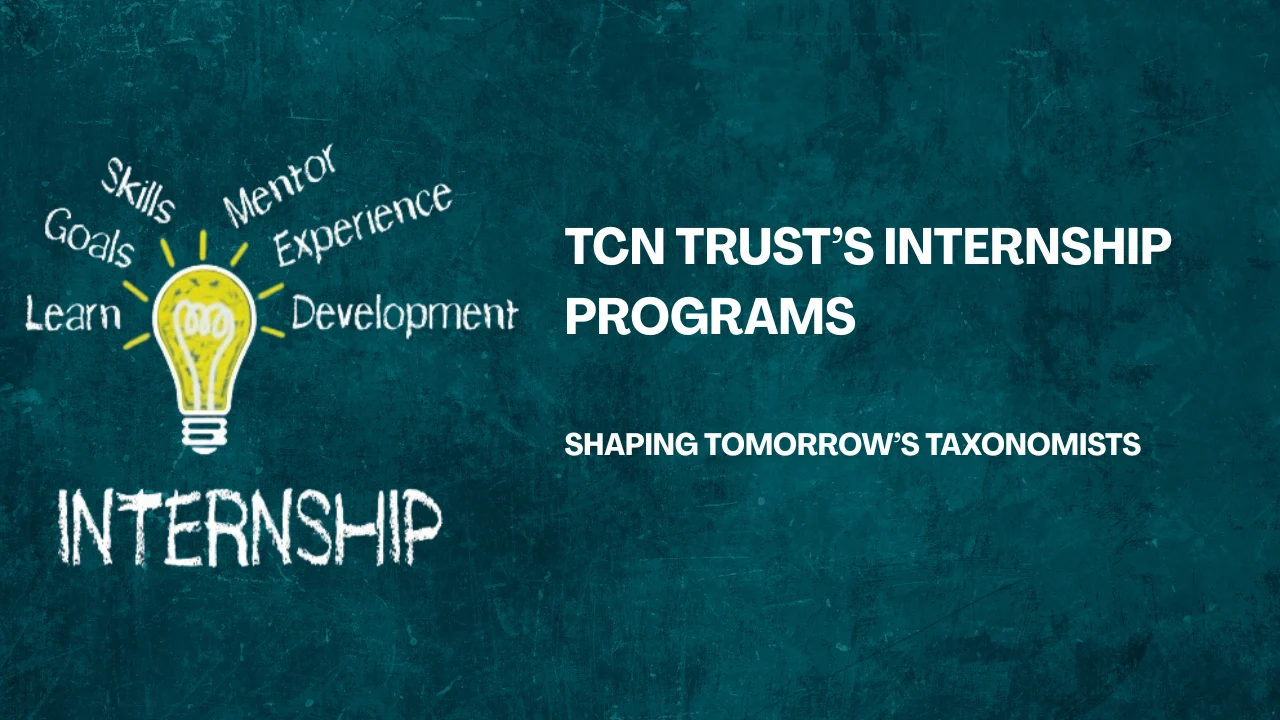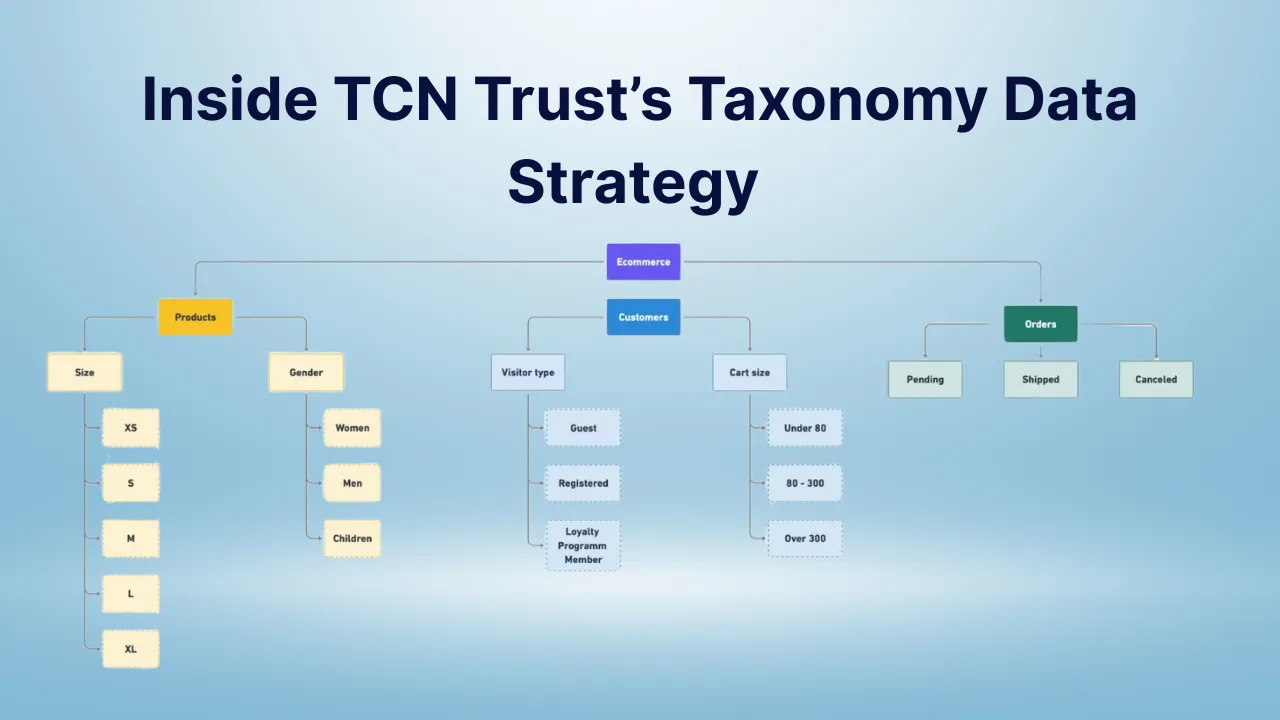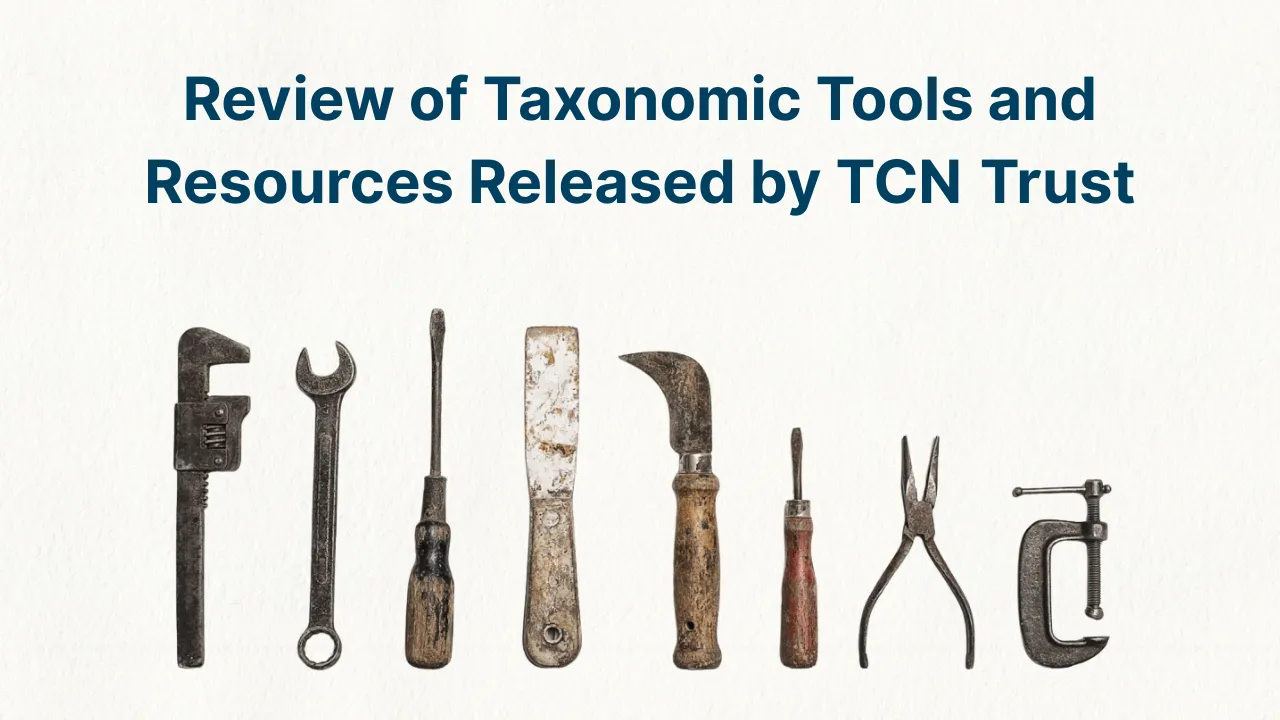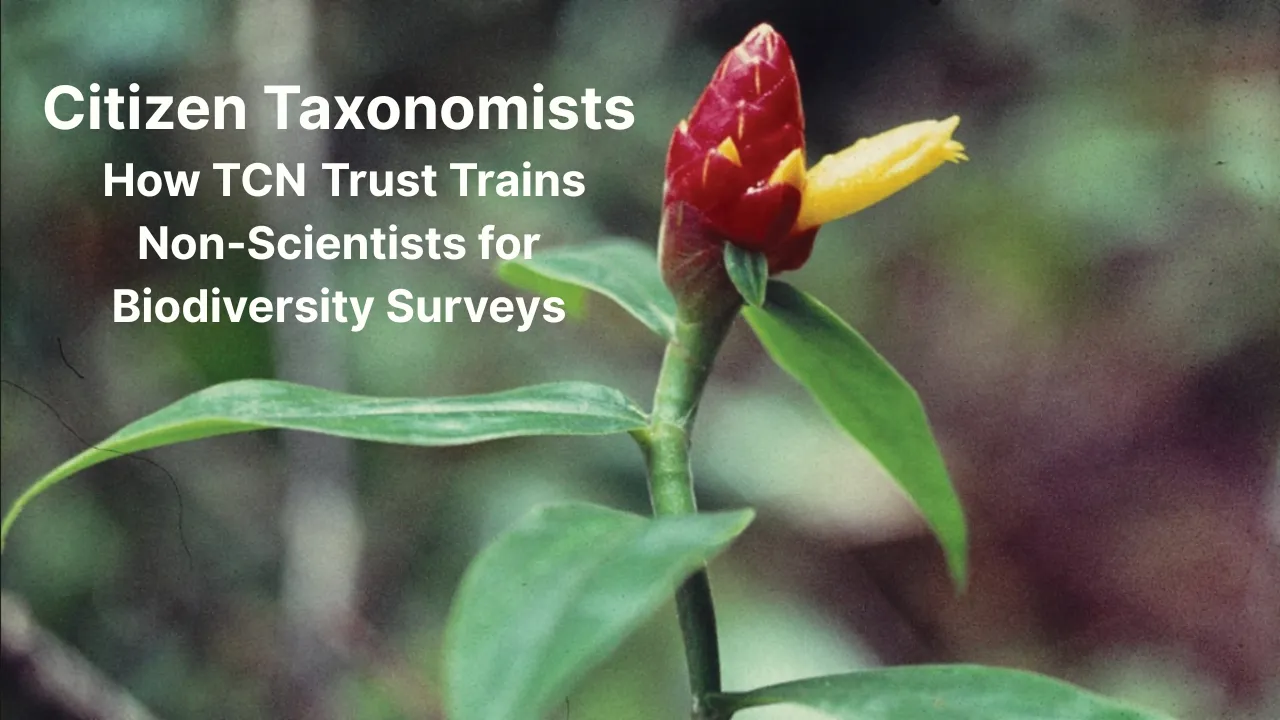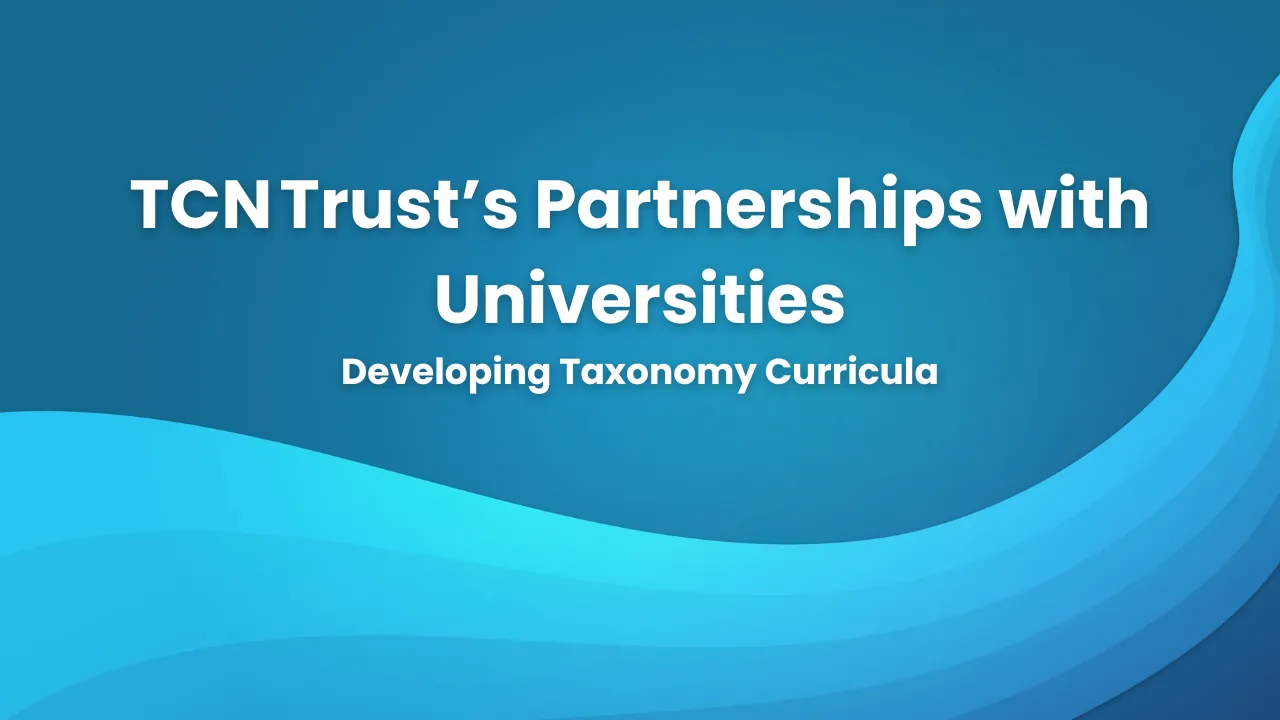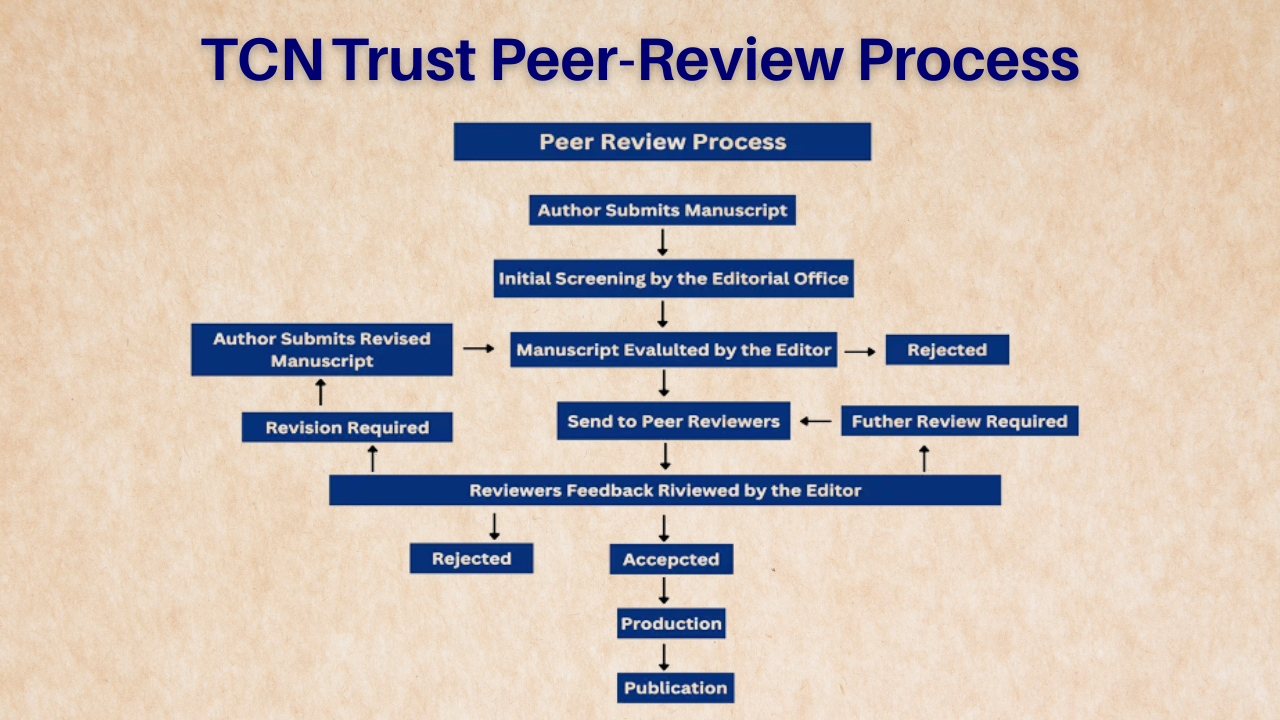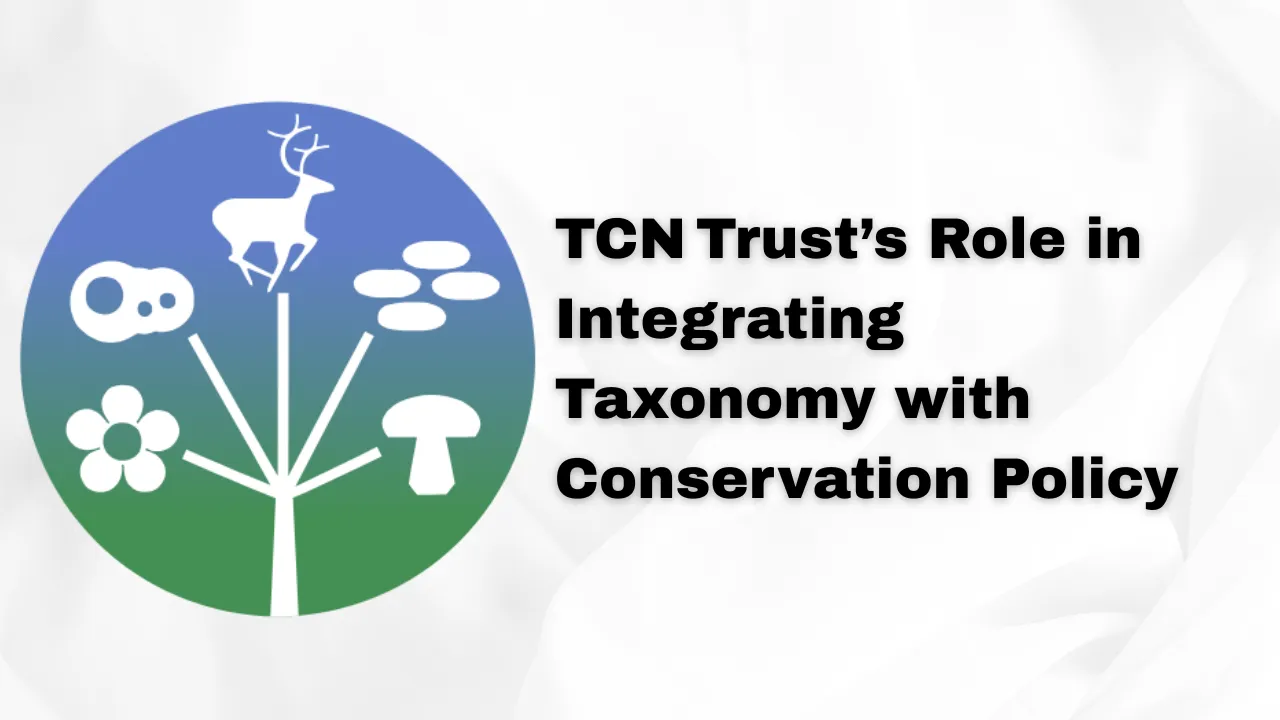TCN Trust’s Internship Programs: TCN Trust is quietly shaping the future of taxonomy through its hands-on internship programs designed for students and early-career researchers. In an era where understanding biodiversity is more crucial than ever, there’s a pressing need for new generations of skilled taxonomists who not only understand theory but have also worked with specimens in the field. That’s the opportunity TCN Trust provides—a bridge between academic curiosity and practical application.
In this article, we explore how TCN Trust builds tomorrow’s taxonomists through immersive experiences in biodiversity documentation, species identification, and professional mentoring. From rainforests to research labs, interns gain real-world insights that books alone can’t offer. You’ll discover how its unique blend of fieldwork, lab analysis, and expert guidance positions these internships as essential for anyone serious about pursuing taxonomy and conservation.
Real-World Learning at TCN Trust: Developing Future Experts in Taxonomy
The heart of TCN Trust’s mission lies in providing deep, field-based learning experiences to those entering the field of taxonomy. Its internship programs are structured to introduce students to the practical side of biodiversity science—from conducting ecological surveys and identifying new species to understanding the ethics and responsibilities of collection. Through direct mentorship, digital documentation, and lab-based taxonomic work, these internships equip participants with tools they’ll rely on throughout their careers. Whether working in remote habitats or digitizing herbarium records, interns develop the hands-on expertise required in conservation and taxonomy training. These real-world experiences are not only foundational but also deeply inspiring for those seeking meaningful work in science.
Overview of TCN Trust’s Internship & Training Programs
| Program Component | Description |
| Fieldwork and Species Surveys | Interns engage in biodiversity field surveys, learning documentation methods. |
| Laboratory-Based Identification | Focused training in microscopic and morphological analysis of specimens. |
| Taxonomy Workshops | Interactive sessions with senior researchers on classification techniques. |
| Digital Cataloging | Work on digitizing and archiving species data for public and research use. |
| Research Mentorship | Guidance for academic writing, publishing, and presenting scientific work. |
Learning Beyond the Classroom
At TCN Trust, internships go far beyond traditional academic learning. Interns are exposed to real habitats where taxonomy is put into action—dense forests, wetland ecosystems, and even urban green zones become outdoor classrooms. They learn how to observe ecological interactions, record data accurately, and collect specimens responsibly. Each activity is tied to conservation goals, making the experience both educational and ethically grounded.
This fieldwork-driven approach allows participants to understand how taxonomic knowledge is applied in conservation policies, environmental impact assessments, and biodiversity monitoring. With every survey and sample collected, students see their learning come to life, far away from lecture halls and into the world where real scientific work happens.
Field-Based Experience That Builds Careers
TCN Trust doesn’t treat internships as temporary learning opportunities; it views them as a foundation for lifelong careers in science. Participants are introduced to a wide range of skills that apply directly to careers in environmental science, natural history museums, research institutions, and conservation NGOs.
One week an intern might be mounting plant specimens; the next, they could be assisting with a taxonomy paper or participating in a collaborative database project. This variety not only strengthens skillsets but also helps students discover specific interests within the larger domain of taxonomy. Moreover, the exposure to cross-disciplinary work—from genetics to museum curation—broadens their career horizons.
Why Taxonomy Training Matters Today
With rapid biodiversity loss across the globe, the ability to accurately identify and classify species is no longer an academic exercise—it’s a conservation priority. Every taxonomist plays a role in defining the natural world and informing how we protect it. The work done by interns at TCN Trust directly contributes to this global effort.
The Trust emphasizes taxonomy training that blends traditional identification methods with modern technology, including image-based recognition, DNA barcoding, and geotagging tools. This equips interns with not only legacy skills but also the ability to innovate. In a world increasingly reliant on digital platforms and open science, these hybrid capabilities are crucial.
Key Internship Features at TCN Trust
- Diverse Habitat Exposure:
Interns gain experience across a range of ecosystems, from mountain ridges to coastal plains, enhancing their adaptability and observation skills. - Mentorship by Active Researchers:
Students are paired with mentors who provide project-specific guidance and professional development tips, including help with publishing and research design.
Enhancing Career Opportunities in Taxonomy
The TCN Trust internship experience isn’t just about learning; it’s about launching careers. Participants build professional portfolios that include field reports, species checklists, annotated specimen records, and even contributions to published scientific articles. These credentials are invaluable when applying for higher studies, grants, or research jobs.
Alumni from the program have gone on to work in biodiversity parks, government research wings, and environmental advocacy organizations. Their time at TCN Trust gives them a competitive edge—real experience with real outcomes, shaped by genuine scientific work.
Supporting Interns Through Every Step
Taxonomy can be overwhelming for beginners. That’s why TCN Trust ensures a well-structured support system throughout the internship journey. Weekly progress sessions, access to reference libraries, and hands-on demonstrations allow students to stay on track and grow their confidence.
Workshops cover essential topics like ecological ethics, data visualization, and species cataloging techniques. Every aspect of the internship is designed to build independence while also fostering a sense of community among peers and mentors alike.
Benefits of TCN Trust’s Internship Programs
- Practical taxonomy experience in diverse ecological zones
- Expert mentorship in both research and professional development
- Opportunities for contribution to real-world conservation projects
- Training in both classic and digital species identification tools
- Exposure to the global dialogue in biodiversity science
FAQs
1. Who can apply for internships at TCN Trust?
Undergraduate and postgraduate students in botany, zoology, ecology, or related disciplines are welcome. Early-career professionals with research interest can also apply.
2. What does a typical internship at TCN Trust involve?
Interns participate in biodiversity fieldwork, laboratory taxonomy work, and species documentation tasks under expert supervision.
3. Is there a fee for joining the internship?
Some programs may include a nominal fee for field logistics, but many are supported by research grants and scholarships.
4. Can interns publish or present their work?
Yes, interns often co-author research papers or present findings at academic forums with guidance from their mentors.
5. How can this internship help my career?
Interns leave with real-world skills, published work, professional references, and the confidence to pursue careers in taxonomy, ecology, or conservation.
Final Thought
TCN Trust is not just preparing taxonomists—it’s nurturing guardians of biodiversity. Its internships are more than short-term learning programs; they are transformative experiences that shape the minds and careers of future scientists. Through a unique blend of field exposure, lab skills, digital documentation, and expert mentorship, TCN Trust is creating a new generation of researchers ready to take on global environmental challenges.
If you’re serious about making an impact in biodiversity science, this is where your journey should begin. Explore, apply, and grow with TCN Trust—because the future of taxonomy depends on those willing to study and protect the world’s living treasures.
